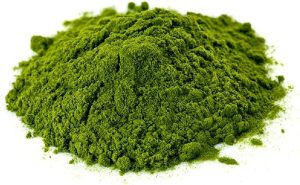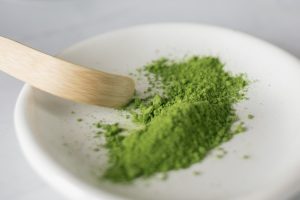
- Overview of Vitamin B7, a.k.a Biotin
- Brief History of Vitamin B7, a.k.a Biotin
- Functions of Vitamin B7, a.k.a Biotin
- Recommended Daily Intake (RDI), Recommended Dietary Allowance (RDA), Adequate Intake (AI) or Reference Nutrient Intake (RNI) for Vitamin B7, a.k.a Biotin
- Deficiency of Vitamin B7, a.k.a Biotin
- Food Sources of Vitamin B7, a.k.a Biotin and Where to Get It From
- Vitamin B7, a.k.a Biotin and Its Interaction with Other Medications
- Websites and Articles to Delve into the Benefits of Vitamin B7, a.k.a Biotin
- Disclaimer
Overview of Vitamin B7, a.k.a Biotin
Vitamin B7, also known as biotin, is a water-soluble vitamin that plays a crucial role in various metabolic processes within the body. It is essential for the metabolism of carbohydrates, fats, and proteins, contributing to the production of energy.
Biotin is involved in the synthesis of fatty acids, amino acids, and glucose. It plays a vital role in maintaining healthy skin, hair, and nails.
Biotin is found in a variety of foods, including eggs, nuts, seeds, and certain vegetables. While biotin deficiency is rare, it can lead to symptoms such as hair loss and skin rash.
Biotin supplementation is sometimes recommended for individuals with specific health conditions, but it’s essential to consult with a healthcare professional before starting any supplementation.
Brief History of Vitamin B7, a.k.a Biotin
The discovery and understanding of Vitamin B7, also known as biotin, are relatively more recent compared to some other vitamins. The story of biotin began in the early 20th century when scientists observed that feeding animals raw egg whites led to symptoms of skin disorders and hair loss. Researchers initially identified a substance in egg whites that caused these effects and called it “egg-white injury factor.”
In the 1930s, scientists isolated the substance responsible for preventing this condition. They named it biotin, derived from the Greek word “biotos,” meaning life. The vitamin was recognized as a member of the B-vitamin complex, and its chemical structure was elucidated in subsequent years.
Biotin’s essential role in various metabolic processes, particularly in the metabolism of fats, carbohydrates, and proteins, became apparent. Over time, biotin’s importance in maintaining healthy skin, hair, and nails was also recognized.
Today, biotin is well-established as a vital nutrient, and its deficiency is rare. It is widely available in various foods, and supplements are sometimes recommended for specific health conditions.
Functions of Vitamin B7, a.k.a Biotin
Vitamin B7, also known as biotin, plays several important roles in the body. Here are key functions of Vitamin B7:
- Carbohydrate, Fat, and Protein Metabolism:
- Biotin is a coenzyme involved in various metabolic processes, facilitating the conversion of carbohydrates, fats, and proteins into energy. It plays a critical role in the metabolism of these macronutrients.
- Fatty Acid Synthesis:
- Biotin is essential for the synthesis of fatty acids, which are building blocks for various cellular structures and play a crucial role in energy storage.
- Amino Acid Metabolism:
- Biotin is involved in the metabolism of certain amino acids, contributing to the synthesis of proteins and other nitrogen-containing compounds.
- Gluconeogenesis:
- Biotin is necessary for gluconeogenesis, the process by which the body synthesizes glucose from non-carbohydrate sources, such as amino acids and fatty acids.
- Cell Growth and Development:
- Biotin supports normal cell growth and development. It is important for maintaining healthy skin, hair, and nails.
- Gene Expression:
- Biotin plays a role in gene expression, influencing the activity of certain genes involved in metabolic processes.
- Maintaining Healthy Skin and Hair:
- Biotin is often associated with promoting healthy skin, hair, and nails. It is a common ingredient in beauty and cosmetic products.
- Regulation of Blood Sugar:
- Biotin may play a role in helping regulate blood sugar levels, although more research is needed in this area.
While biotin deficiency is rare, inadequate levels may lead to symptoms such as hair loss, skin rash, and neurological issues. Biotin is found in various foods, including eggs, nuts, seeds, and certain vegetables. In some cases, supplements are recommended for individuals with specific health conditions, but supplementation should be done under the guidance of a healthcare professional.
Recommended Daily Intake (RDI), Recommended Dietary Allowance (RDA), Adequate Intake (AI) or Reference Nutrient Intake (RNI) for Vitamin B7, a.k.a Biotin
The Recommended Dietary Allowance (RDA) for Vitamin B7 (biotin) had not been officially established by some health authorities like the U.S. National Institutes of Health (NIH). However, there are Adequate Intake (AI) levels provided. It’s important to note that nutrient recommendations may vary among countries and health organizations.
As per the U.S. National Institutes of Health (NIH), the Adequate Intake (AI) for biotin is as follows:
- Infants (0-12 months): 5 micrograms (mcg) per day
- Children (1-3 years): 8 mcg per day
- Children (4-8 years): 12 mcg per day
- Children (9-13 years): 20 mcg per day
- Adolescents (14-18 years): 25 mcg per day
- Adults (19 years and older): 30 mcg per day
- Pregnant individuals: 30 mcg per day
- Breastfeeding individuals: 35 mcg per day
These values are general recommendations, and individual requirements may vary based on factors such as age, sex, health status, and pregnancy. Biotin is found in various foods, and deficiency is rare, especially in individuals with a balanced diet.
Always consult with a healthcare professional or a registered dietitian for personalized advice based on your specific circumstances, and consider that recommendations may be subject to updates.
Deficiency of Vitamin B7, a.k.a Biotin
Vitamin B7 deficiency, also known as biotin deficiency, is relatively rare because biotin is widely available in a variety of foods and is also synthesized by gut bacteria. However, certain factors can contribute to a deficiency, leading to a range of symptoms. Here are some causes and potential symptoms of Vitamin B7 deficiency:
Causes:
- Poor Diet:
- Inadequate intake of foods containing biotin, especially in individuals with highly restrictive diets.
- Raw Egg White Consumption:
- Consuming large amounts of raw egg whites over an extended period can lead to biotin deficiency. Raw egg whites contain avidin, a protein that binds biotin and reduces its absorption.
- Gastrointestinal Disorders:
- Conditions that affect nutrient absorption in the gastrointestinal tract, such as inflammatory bowel diseases or certain surgical procedures.
- Genetic Factors:
- Rare genetic conditions that affect biotin metabolism.
Symptoms:
- Hair Loss:
- Biotin deficiency may lead to hair thinning or loss.
- Skin Issues:
- Dermatitis, characterized by dry and scaly skin, is a common symptom.
- Brittle Nails:
- Biotin is associated with maintaining healthy nails, and a deficiency may lead to brittle or easily breakable nails.
- Neurological Symptoms:
- In severe cases, neurological symptoms such as depression, lethargy, hallucinations, and numbness or tingling in the extremities may occur.
- Conjunctivitis:
- Inflammation of the conjunctiva, the thin membrane covering the white part of the eye.
- Developmental Issues in Infants:
- Biotin deficiency during pregnancy or breastfeeding can lead to developmental issues in infants.
Treatment for biotin deficiency typically involves increasing dietary intake through a well-balanced diet or using biotin supplements. Biotin supplementation is often effective in addressing symptoms associated with deficiency. Individuals experiencing symptoms or at risk of deficiency should seek guidance from a healthcare professional for proper diagnosis and treatment.
Food Sources of Vitamin B7, a.k.a Biotin and Where to Get It From
Vitamin B7, also known as biotin, is found in a variety of foods. Including these foods in your diet can help ensure an adequate intake of biotin. Here are some common food sources of Vitamin B7:
- Eggs:
- Egg yolks are a rich source of biotin. However, it’s important to note that avidin, a protein in raw egg whites, can interfere with biotin absorption. Cooking eggs denatures avidin, making biotin more bioavailable.
- Meat:
- Various meats, such as liver, pork, and beef, contain biotin.
- Poultry:
- Chicken and turkey are good sources of biotin.
- Fish:
- Fish, including salmon and tuna, provides biotin.
- Nuts and Seeds:
- Almonds, peanuts, sunflower seeds, and walnuts are biotin-rich.
- Legumes:
- Lentils, soybeans, and other legumes contain biotin.
- Dairy Products:
- Milk, cheese, and yogurt are sources of biotin.
- Vegetables:
- Certain vegetables, such as sweet potatoes and spinach, contribute to biotin intake.
- Whole Grains:
- Whole grains like oats and barley contain biotin.
- Avocado:
- Avocado is a fruit that provides biotin.
- Mushrooms:
- Mushrooms, especially shiitake and portobello, are good sources.
- Fruits:
- Bananas are a fruit that contains biotin.
Including a variety of these foods in your diet can help you meet your Vitamin B7 requirements. While biotin deficiency is rare due to its presence in many foods and the synthesis by gut bacteria, individuals with certain health conditions or on highly restrictive diets may consider biotin supplements under the guidance of a healthcare professional. Always consult with a healthcare provider or a registered dietitian for personalized advice based on your specific needs.
Vitamin B7, a.k.a Biotin and Its Interaction with Other Medications
Vitamin B7, or biotin, is generally considered safe and well-tolerated when used at recommended doses. It has fewer known interactions with medications compared to some other vitamins. However, there are a few considerations regarding biotin and its potential interactions with certain medications:
- Lab Tests:
- Biotin supplements can interfere with some lab tests, leading to false results. High-dose biotin supplementation may affect tests that use biotin-containing reagents, such as those measuring thyroid hormones and troponin (a marker for heart damage). It’s advisable to inform healthcare providers about biotin supplementation if undergoing such tests.
- Anticonvulsant Medications:
- Some anticonvulsant medications, such as phenobarbital and phenytoin, may reduce biotin levels in the blood. Individuals on long-term anticonvulsant therapy may require monitoring of biotin status.
- Antibiotics:
- Certain antibiotics, such as sulfa drugs, may interfere with biotin absorption in the gastrointestinal tract.
- Isotretinoin (Accutane):
- Isotretinoin, a medication used to treat severe acne, may reduce blood levels of biotin. Monitoring biotin levels may be considered in individuals on isotretinoin therapy.
While these interactions are noted, they are generally mild, and the risk of biotin deficiency due to medication use is relatively low. As always, it’s crucial to inform healthcare providers about all medications and supplements being taken to ensure comprehensive and safe healthcare management. If you are considering biotin supplementation or have concerns about potential interactions, consult with your healthcare professional for personalized advice based on your specific health situation.
Websites and Articles to Delve into the Benefits of Vitamin B7, a.k.a Biotin
Here’s a brief summary of information about Vitamin B7 (Biotin) from the provided websites:
- Harvard T.H. Chan School of Public Health:
- The Harvard Nutrition Source page on biotin discusses its role in the body, including its importance for metabolism, cell growth, and the maintenance of healthy hair, skin, and nails.
- Medical News Today:
- The Medical News Today article covers various aspects of biotin, including its functions, dietary sources, recommended intake, and potential health benefits.
- Wikipedia:
- The Wikipedia page on biotin provides an overview of its chemical structure, functions, and dietary sources. It also covers information on biotin deficiency.
- WebMD:
- The WebMD page on biotin offers information on its uses, side effects, interactions, and potential benefits for hair and nail health.
- News Medical:
- The News Medical article discusses biotin, focusing on its sources, health benefits, and recommended dosage. It also covers potential deficiencies and toxicity.
- Netmeds:
- The Netmeds health library post covers the functions of Vitamin B7 (biotin), its food sources, and information on deficiencies and toxicity.
- Verywell Health:
- The Verywell Health article explores the use of biotin for hair growth and provides information on its potential benefits and considerations.
- Simply Supplements:
- The Simply Supplements page discusses the benefits of biotin, including its role in maintaining healthy skin, hair, and nails. It also mentions its potential contribution to energy metabolism.
These summaries offer a snapshot of the information available on each website. For more detailed information, you may want to visit the respective websites directly.
Disclaimer
The information is solely provided for educational purposes. It is not intended to diagnose, treat, cure, or prevent any disease. Seek the advice of your physician or qualified healthcare provider with any questions you may have regarding a medical condition at all times. Never disregard professional medical advice because of something you have read or learned from this article.






